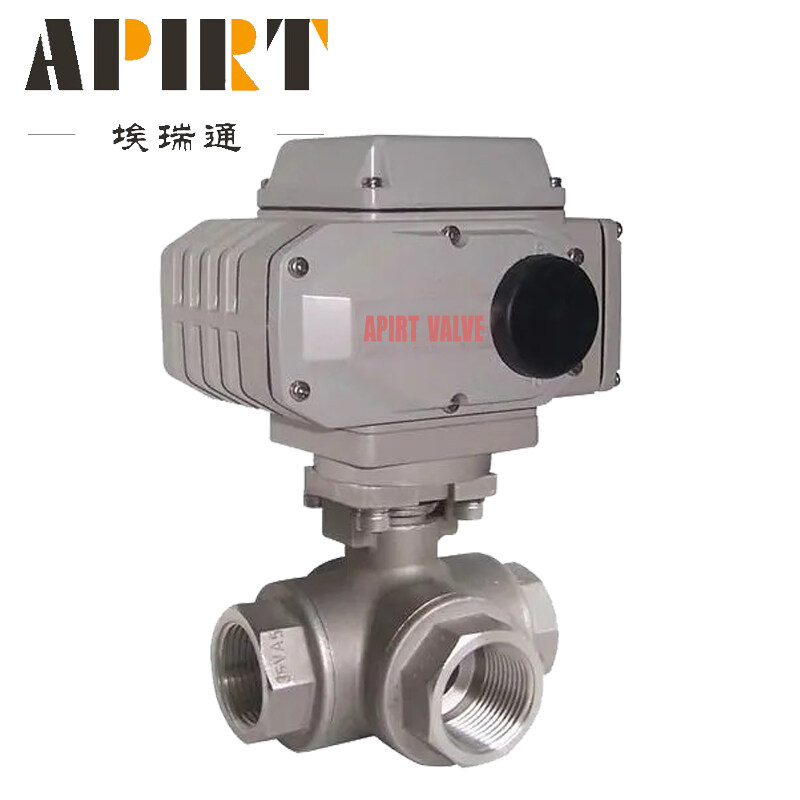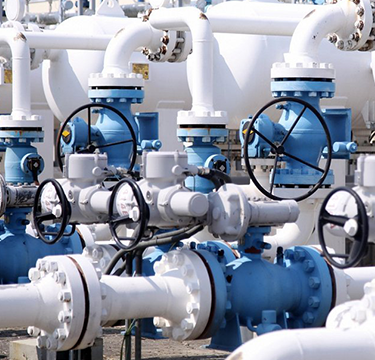E-Mail-Formatfehler
emailCannotEmpty
emailDoesExist
pwdLetterLimtTip
inconsistentPwd
pwdLetterLimtTip
inconsistentPwd

Nachricht
Hier können Sie einen Text beschreiben, den Sie ausdrücken möchten

Factors Influencing 3-Way Stopcock Prices
Material Composition
Plastic vs. Metal
Plastic 3-Way Stopcocks
Plastic 3-way stopcocks are often preferred for their cost-effectiveness and versatility. These components are typically made from materials such as polypropylene or polycarbonate, which offer a balance between durability and affordability. The primary advantage of plastic stopcocks is their lower production cost, which translates into a more accessible price point for consumers. They are commonly used in environments where high pressure or corrosive substances are not a major concern, such as in many medical and laboratory settings.
However, the lower cost of plastic also means that these stopcocks may not be suitable for every application. They can be less durable than metal counterparts and might not handle high-pressure situations as effectively. For industries requiring frequent and heavy use, plastic stopcocks might need to be replaced more often, potentially leading to higher long-term costs.
Metal 3-Way Stopcocks
Metal 3-way stopcocks, often made from stainless steel or brass, are designed to withstand more demanding environments. These materials offer superior strength, corrosion resistance, and longevity compared to plastic. The higher production costs associated with metals reflect their enhanced performance and durability, which is crucial for applications involving high pressure or harsh chemicals.
The increased cost of metal stopcocks is justified by their ability to perform reliably in more challenging conditions. For instance, in industrial settings or high-stress medical environments, the robust nature of metal stopcocks can lead to fewer replacements and maintenance issues over time. Consequently, while the initial investment is higher, the long-term benefits of metal stopcocks can outweigh the upfront costs.
Brand Reputation and Quality
Impact of Brand on Price
Brand reputation plays a significant role in the pricing of 3-way stopcocks. Established brands with a long history of reliability and quality assurance often command higher prices. This is due to the trust they have built with consumers and the perceived assurance of quality and consistency. Reputable brands invest in rigorous testing and quality control processes, which contribute to higher production costs and, consequently, higher prices.
Conversely, lesser-known or new brands may offer lower prices to attract customers and build their market presence. While these stopcocks might provide a cost-effective alternative, they might not always meet the same quality standards as those from well-established brands. Therefore, consumers must weigh the trade-off between cost and potential risks associated with lower-priced, less proven options.
Quality Assurance and Certification
Quality assurance and certification also impact the price of 3-way stopcocks. Certifications from recognized organizations, such as the International Organization for Standardization (ISO) or the American Society for Testing and Materials (ASTM), indicate that a product meets specific performance and safety standards. Stopcocks with these certifications typically command higher prices due to the stringent testing and quality checks they undergo.
Additionally, high-quality manufacturing processes and adherence to industry standards contribute to the overall cost. Stopcocks that have been tested and certified to handle particular pressures, temperatures, or chemical exposures generally come with a higher price tag. This investment in quality can be crucial for applications where performance and reliability are paramount.
Size and Specifications
Variations in Size
The size of a 3-way stopcock significantly influences its price. Standard sizes are generally more affordable due to economies of scale in production. These sizes are manufactured in larger quantities and are often used in common applications, which helps keep costs down.
Custom or specialized sizes, however, can be much more expensive. These stopcocks may require unique molds, additional materials, or specialized manufacturing processes, all of which contribute to higher costs. Industries with specific needs may have to invest in custom-sized stopcocks to meet their requirements, leading to increased expenses.
Technical Specifications
Technical specifications, such as pressure ratings, flow rates, and compatibility with various substances, also affect the price. Stopcocks with advanced features, such as precise flow control or enhanced durability, typically cost more. These specifications are essential for applications that demand high performance or where regular adjustments are necessary.
For example, a stopcock designed to handle extreme temperatures or high-pressure environments will generally be more expensive than a basic model. The complexity of the design and the materials used to meet these specifications drive up the cost, reflecting the advanced engineering and quality involved.
Country of Manufacture and Import/Export Factors
Manufacturing Location
The country of manufacture can have a significant impact on the price of 3-way stopcocks. Production costs vary widely from one country to another due to differences in labor costs, material availability, and overhead expenses. For example, stopcocks manufactured in countries with lower labor costs may be priced more competitively than those produced in high-cost regions.
Additionally, the manufacturing location affects logistical considerations, such as shipping and handling. Stopcocks produced in distant countries may incur higher transportation costs, which are passed on to the consumer. Conversely, locally produced stopcocks might be more affordable due to reduced shipping expenses and faster delivery times.
Import/Export Considerations
Import and export factors also play a crucial role in pricing. Duties, taxes, and tariffs imposed on imported stopcocks can increase their final price. These costs vary depending on trade agreements and regulations between countries. For instance, a stopcock imported from a country with high tariffs may be significantly more expensive than one produced domestically or in a country with favorable trade relations.
Shipping costs and logistical challenges further contribute to the overall price. Variations in shipping methods, transit times, and potential delays can impact costs, particularly for international transactions. Buyers should consider these factors when evaluating the total cost of importing stopcocks from different regions.
Price Comparison
Comparative Pricing of 3-Way Stopcocks
When comparing the prices of 3-way stopcocks from different manufacturers, several factors come into play. Established brands with a reputation for quality often charge higher prices due to their investment in research, development, and quality control. In contrast, newer or lesser-known brands may offer lower prices to attract customers but might not provide the same level of performance or reliability.
It is essential to compare not only the base prices but also the features and specifications of stopcocks from various manufacturers. Some brands may offer additional benefits, such as extended warranties or enhanced performance, which can justify a higher price. Understanding the value proposition of each option helps in making an informed purchasing decision.
Vendor/Supplier Pricing Differences
Price variations between different vendors or suppliers can be significant. Factors such as bulk purchasing discounts, supplier contracts, and regional pricing strategies contribute to these differences. Some suppliers may offer lower prices for bulk orders or have special promotions that reduce costs.
When purchasing 3-way stopcocks, it is advisable to explore multiple vendors and consider factors such as shipping costs, return policies, and customer service. Comparing prices and terms from various sources helps in finding the best deal and ensures that you are getting value for your investment.
Cost Analysis for Different Uses
Medical Settings
In medical settings, such as hospitals and clinics, the cost of 3-way stopcocks can have a substantial impact on budgets. Hospitals often require a large volume of these components for various applications, including intravenous infusion and fluid management. The cost implications can be significant, especially if the stopcocks are used frequently or need to meet stringent quality standards.
Healthcare facilities must balance cost with quality and reliability. While lower-priced stopcocks may reduce upfront expenses, they might not always offer the performance needed for critical medical procedures. Investing in high-quality stopcocks can lead to better patient outcomes and fewer issues with equipment failure.
Industrial Applications
In industrial settings, the cost of 3-way stopcocks is influenced by the specific requirements of the application. Heavy-duty stopcocks designed to handle high pressure, corrosive substances, or extreme temperatures often come with higher price tags. However, their durability and performance can result in cost savings over time by reducing the frequency of replacements and maintenance.
For industries that rely on stopcocks for critical processes, the initial investment in high-quality components can be offset by improved efficiency and reliability. Analyzing the long-term benefits and total cost of ownership helps in making cost-effective decisions for industrial applications.
Conclusion
Understanding the factors that influence the prices of 3-way stopcocks is essential for making informed purchasing decisions. Material composition, brand reputation, size, and technical specifications all contribute to the overall cost. Additionally, considerations such as manufacturing location, import/export factors, and the specific use case play crucial roles in determining price.
By carefully evaluating these factors and comparing prices from different manufacturers and suppliers, buyers can find the best options that meet their needs and budget. Whether for medical or industrial applications, making a well-informed choice ensures optimal performance and cost-effectiveness in the long run.

